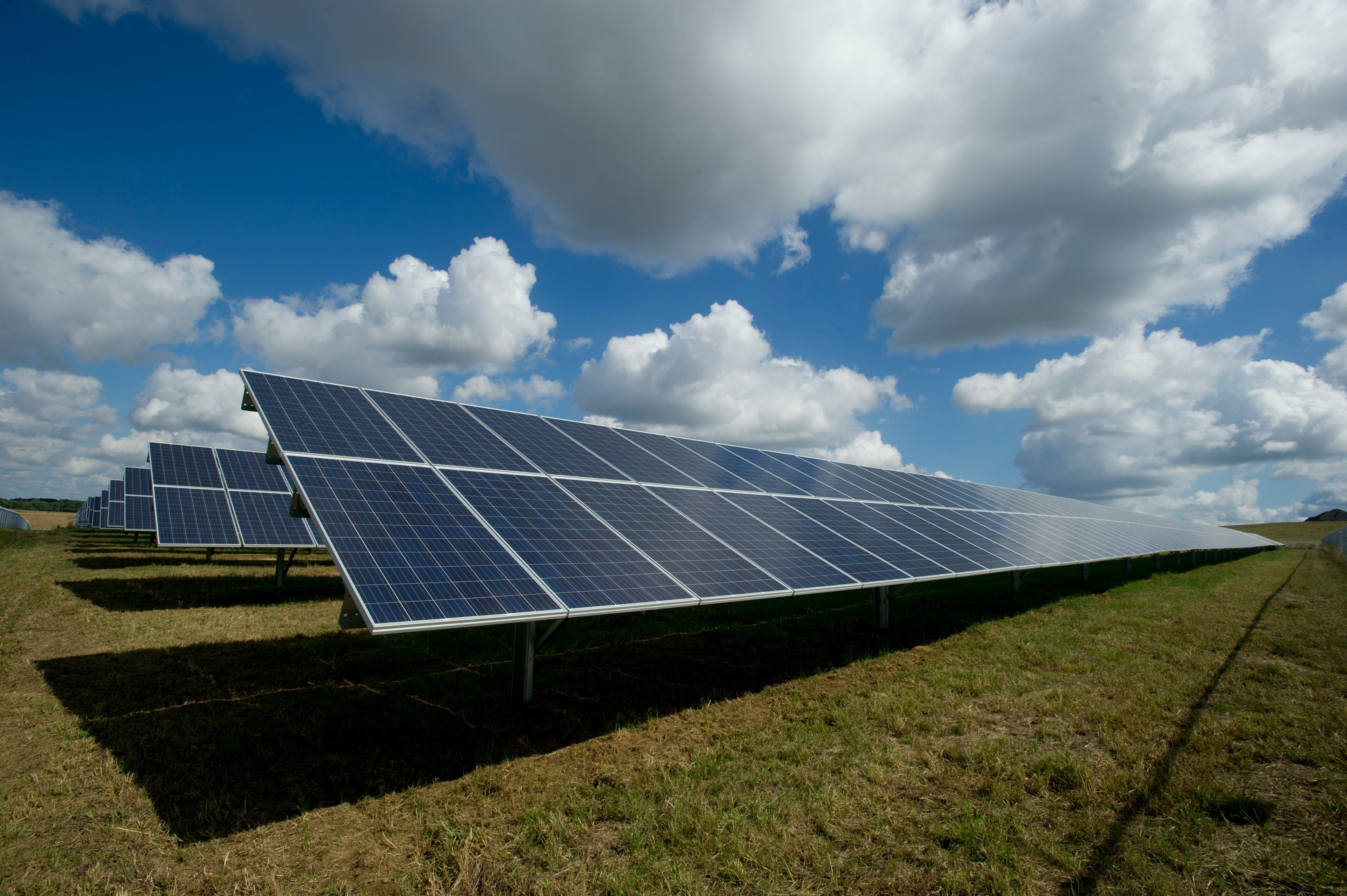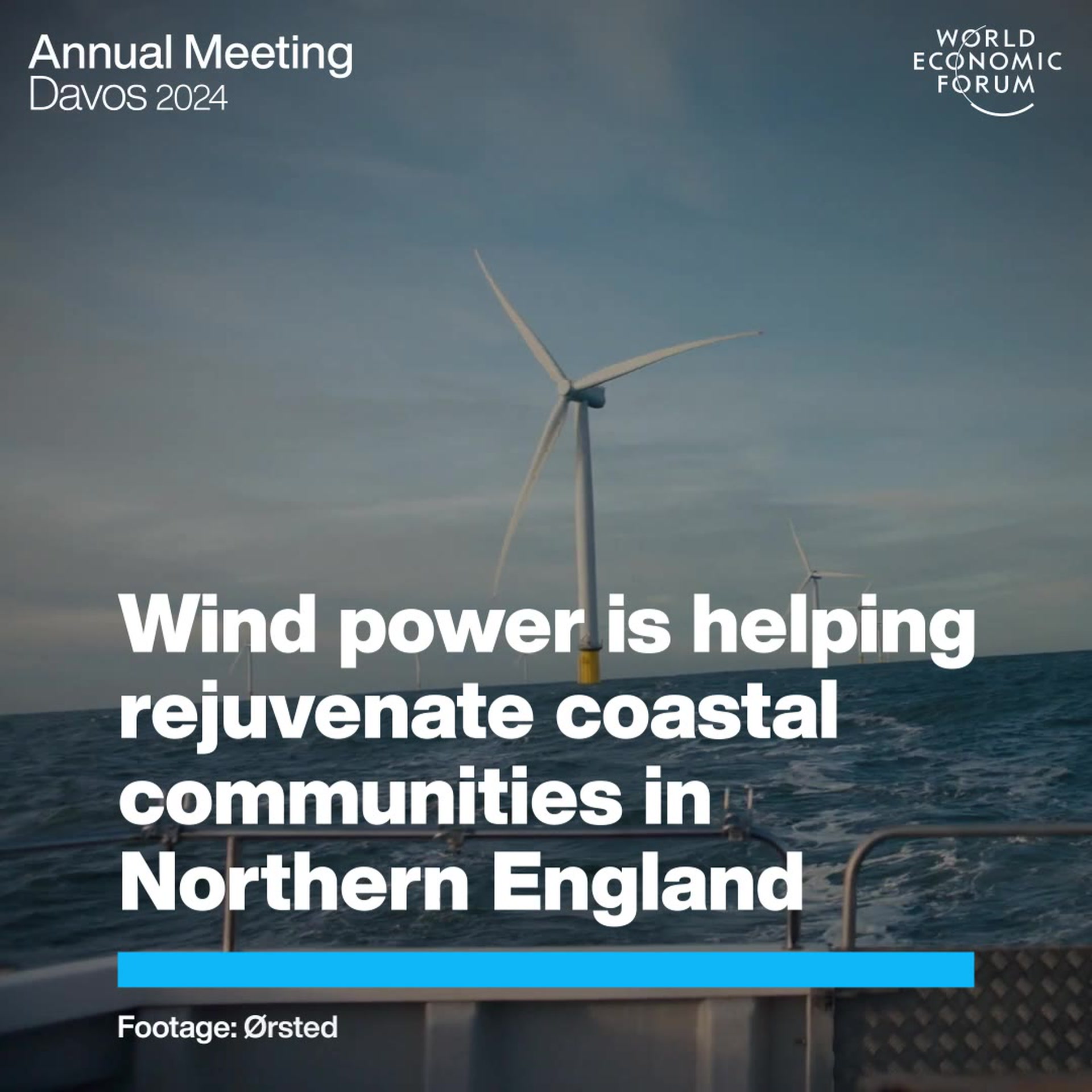Portugal set to start up Europe's largest floating solar park

Floating solar farms are becoming more common in the fight to cut CO2 emissions. Image: Unsplash/Rei Yamazaki

Get involved with our crowdsourced digital platform to deliver impact at scale
Stay up to date:
Electricity
- Portugal is preparing to start up Europe's largest floating solar park, with over 12,000 solar panels.
- Long hours of sunshine and fast Atlantic winds have helped Portugal accelerate its shift to renewables.
- Floating panels don’t require costly real estate and those on reservoirs used for hydropower are particularly cost effective as they can hook up to existing links to the power grid.
- They have been installed in places from California to polluted industrial ponds in China, in the fight to cut CO2 emissions.
Two tugboats have moved a vast array of 12,000 solar panels, the size of four soccer pitches, to their mooring on Portugal's Alqueva reservoir in preparation to start up Europe's largest floating solar park in July.
EDP's floating solar farm in Portugal: the largest in Europe
Built by the country's main utility EDP on Western Europe's biggest artificial lake, the shiny floating island is part of Portugal's plan to cut reliance on imported fossil fuels whose prices have surged since Russia's invasion of Ukraine.
Blessed by long hours of sunshine and Atlantic winds, Portugal has accelerated its shift to renewables. But even though Portugal uses almost no Russian hydrocarbons, its gas-fired power plants still feel the squeeze of rising fuel prices.
Miguel Patena, EDP group director in charge of the solar project, said when the tugboats moved the panels into position that electricity produced from the floating park, with installed capacity of 5 megawatts (MW), would cost a third of that produced from a gas-fired plant.
The panels on the Alqueva reservoir, which is used to generate hydropower, would produce 7.5 gigawatt/hours (GWh) of electricity a year, and would be complemented by lithium batteries to store 2 GWh.
The solar panels will supply 1,500 families with power or a third of the needs of the nearby towns of Moura and Portel.





"This project is the biggest floating solar park in a hydro dam in Europe, it is a very good benchmark," Patena said.
Solar panels mounted on pontoons on lakes or at sea have been installed in range of places from California to polluted industrial ponds in China, in the fight to cut CO2 emissions.
Floating panels do not require valuable real estate and those on reservoirs used for hydropower are particularly cost effective as they can hook up to existing links to the power grid. Excess power generated on sunny days can pump water up into the lake to be stored for use on cloudy days or at night.
EDP executive board member Ana Paula Marques said the war in Ukraine showed the need to accelerate the shift to renewables
She said the Alqueva project was part of EDP's strategy "to go 100% green by 2030", with hydropower and other renewables now accounting for 78% of EDP's 25.6 GW of installed capacity.
In 2017, EDP installed a pilot floating solar project with 840 panels on the Alto Rabagao dam, the first in Europe to test how hydro and solar power could complement each other.
EDP already has plans to expand the Alqueva project. It secured the right in April to build a second floating farm with 70 MW installed capacity.
What's the World Economic Forum doing about the transition to clean energy?
Don't miss any update on this topic
Create a free account and access your personalized content collection with our latest publications and analyses.
License and Republishing
World Economic Forum articles may be republished in accordance with the Creative Commons Attribution-NonCommercial-NoDerivatives 4.0 International Public License, and in accordance with our Terms of Use.
The views expressed in this article are those of the author alone and not the World Economic Forum.
Related topics:
The Agenda Weekly
A weekly update of the most important issues driving the global agenda
You can unsubscribe at any time using the link in our emails. For more details, review our privacy policy.
More on ElectricitySee all
Francisco Laverón, Randolph Brazier, Natalia Zabolotnikova and Xabier Mugarza Zorriqueta
March 26, 2024
Johnny Wood
February 8, 2024
Cristen Hemingway Jaynes
February 5, 2024
Jamie Wylie and Adrienne Gibbs
January 18, 2024
January 17, 2024







